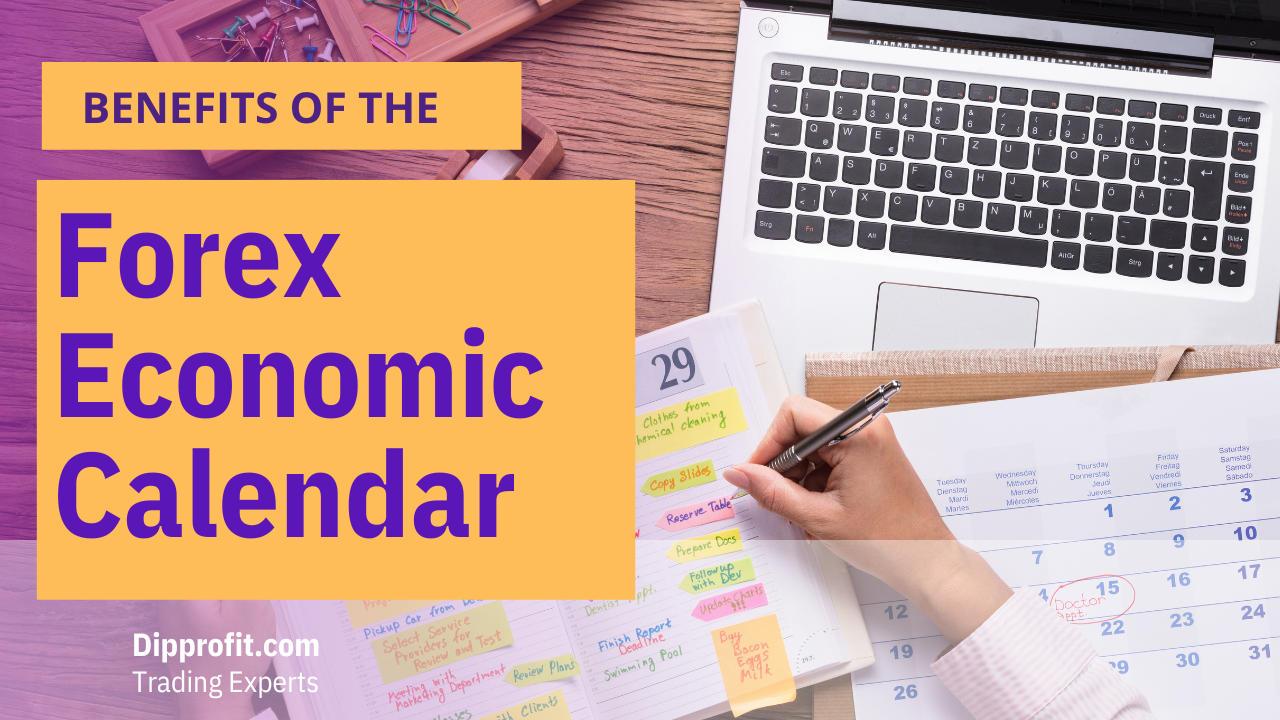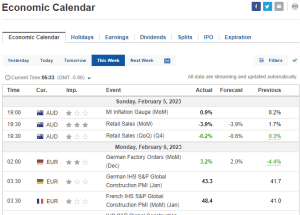
Forex Economic Calendar
Most Forex traders today are more inclined to the aspect of technical analysis than to fundamentals when it comes to trading, although this is not a bad thing to do, the fact still remains that fundamentals are what actually drive the technical aspect of the market. Therefore, the importance of fundamental analysis in Forex Trading cannot be underestimated.
One of the major tools used in tracking and analyzing market fundamentals is known as the economic calendar. The Forex economic calendar shows a detailed list of all financial & economic activities that occur on a daily basis, in most cases, this calendar is also programmed to help highlight events that are very likely to affect the market or a particular instrument.
Although The economic calendar is not as popular as your regular technical Forex tools they are equally as important as your typical moving average tools and there are actually a lot of benefits of the Forex economic calendar.
The Economic calendar is a lot more useful to Swing Traders who take trades for long periods of time, as compared to day traders or scalpers. Therefore let’s take a deeper look into Economic calendars, their purposes, and the benefits they can provide to you as a Forex Trader.
Forex economic calendars are tools used by investors and shareholders to stay updated on the latest economic events all over the world. Sometimes they are also called financial calendars. They contain various happenings that have to do with the economy.
Some of the items that can be found in the Forex Economic Calendar include employment claims, debt auctions, CPIs, PPI, and factory orders. It also has gross domestic products, consumer price index, and other similar kinds of information. Economists and financial analysts use these data to predict economic statistics and the general direction the market is likely to move towards.
Understanding the Benefits of the Forex Economic Calendar
The information contained in the Forex economic calendar is always very helpful when building trading strategies and taking trade decisions. Let’s take a look at the ways in which this information can be very useful to both day traders and swing traders.
The first is its ability to help a trader determine market volatility
This is one of the most significant benefits of the Forex economic calendar. It helps determine the market’s volatility in the coming days or weeks. Oftentimes, the market becomes highly volatile immediately after a major economic announcement. In other words, it will be very risky to place big trades. The more important the announcement, the more unstable the market will be.
Events included in the Forex economic calendar have a rating of low, medium, or high. The event with the low rating has very little to no impact on the market while the event having a high rating in most cases has a very high impact on the market, thus causing a very high level of market volatility. In other words, the rating depends on how much impact that particular event can have on the Forex market.
It helps and assists you in planning your trades in advance and also drawing up your strategy properly.
The economic calendar includes the schedule of the release of major macroeconomic indicators. These are economic reports that contain detailed information about the economic performance of a country. Many of these indicators are actually part of the economic calendar.
By keeping an eye on these indicators, you will be able to plan your trades ahead. With the help of the economic calendar, you can time your trades in the right manner. Thus, you can avoid being a victim of sudden market action.
Maximizing the Benefits of the Forex Economic Calendar
Having a better understanding of the benefits that you can get from the economic calendar, you also need to know how to make the most out of these benefits. Obviously, you will have to learn how to read the calendar first. As early as now, you have to familiarize yourself with the contents and what it all means in terms of trading.
It is also important that you check the calendar regularly. You don’t have to stay glued to it every minute, as you might do with charts if you do short-term trading. It’s enough to make a habit of checking the economic calendar every morning.
Also, you don’t have to use every single detail found in the calendar. For the regular day trader, only a small portion of the total information will be of relevance, I have already given some of the economic events that have major effects on the market earlier in the post, and looking out for these events is enough for a regular day trader. Since most economic calendars contain vast amounts of data, it can be hard to scan everything to find what you need.
To make things easier, you can customize your view of the calendar. You can pick only the reports or releases that are relevant to your trades. This way, you can get the most benefits of the Forex economic calendar without feeling overwhelmed by the sheer volume of all the data that you do not need.
The trading platforms of most online brokers now come with an economic calendar, if yours doesn’t, you can also check the economic calendar on the following platforms: investing.com or forexfactory.com.
Read it regularly so that you can get used to what it contains. The more you take a look at it, the better you would be at interpreting the data. Customize it so that it fits into your trading plan and strategy.
Once you are able to do this, it won’t be long before you can enjoy all the benefits of the Forex economic calendar. Pretty soon, you will be on your way to becoming a more successful Forex trader.
I know you should be asking by now if I am also going to explain how to check, analyze and interpret the economic calendar, don’t worry, In our next few posts we would be looking at the meaning of some of the most important events that you would be coming across while using the economics calendar, how to interpret them and use them to speculate the volatility of the market as well as the general direction the market is likely to move in.


0 thoughts on “2 Key Benefits of the Forex Economic Calendar”